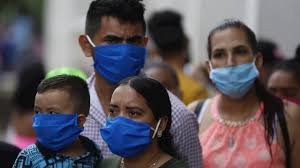Gorgas Institute heading Diagnostic Network to fight “critical situation”

A National Diagnostic Network involving public and private hospitals led by the Gorgas Memorial Institute for Health Studies has been created in Panama to increase and speed up tests for coronavirus so that the positive cases are isolated in time and new infections avoided.
Meanwhile authorities are eyeing a “sanitary fence” to prevent people from flocking to the interior and spreading the disease.
The network using 15,000 recently purchased kits Will operate in the San Miguel Arcángel, del Niño, Arnulfo Arias Madrid, Santo Tomás and Oncológico hospitals in the capital; and Nicolás Solano de La Chorrera, José Domingo de Obaldía and in Chiriquí, Chicho Fábrega de Veraguas and Aquilino Tejeira de Coclé.
In addition, private hospitals will be authorized to have the technology to practice the tests.
All diagnoses must be validated by Gorgas, whose director, Juan Miguel Pascale, clarified that the massification of the tests does not imply applying it to the entire population, but to those who present the symptoms.
Health authorities have urged the population to comply with precautionary measures and mobility restrictions and warned that, if not complied with, a sanitary fence could be set up, to prevent the capital population from moving to the interior and taking the virus with them.
Health authorities said on Saturday that the country “faces a critical situation” due to local transmission of the coronavirus.
The national director of Health, Nadja Porcell, said that the majority of cases are reported in central Panama (23), northern Panama (6), San Miguelito (8) and the province of Western Panama (6).
She said that 4,535 travelers have been under epidemiological observation, of which 3,104 were discharged, leaving 1,431 people under home monitoring.
The Vice Minister of Health, Luis Sucre, said that being the 112th country to get the Covid-19 disease allowed Panama to know the effectiveness of some measures taken by other countries like Chinato control the pandemic
Some countries that did not comply with the indicated health recommendations now have a high number of cases like Italy, where yesterday there were over 17,660 cases and 2,547 deaths.
Sanitary fence
“It is important that the population of Panama abide by the laws and regulations that are instructed to control the situation,” said Sucre, who also warned that they are considering creating a sanitary fence to prevent people from traveling to the provinces and vice versa.
The director of the Social Security Fund (CSS), Enrique Lau Cortés, said that the “country faces a dangerous situation”, so it is necessary to refrain from traveling to the provinces and going to health facilities if not necessary.
Outpatient consultations of the main hospitals are temporarily relocated to areas where there is less risk of infection.
Social distancing
In this scenario, social distancing as a containment measure sounds difficult, but in reality, it is a public health term that describes the best defense against coronavirus, said Lau Cortés
The term is gaining relevance at this time in Panama since the majority of Covid-19 cases are concentrated in the capital city and the dormitory province of Panama Oeste. .
Centers for Disease Control and Prevention (CDC,) suggest that the pathogen can spread “between people who are in direct contact (within 2 meters
Former adviser for the severe acute respiratory syndrome (SARS) and influenza A for the WHO and the UK government, Roy Anderson, recently published a study in the scientific journal The Lancet , which argues that what remains today to mitigate cases it is voluntary rather than mandatory quarantine and to stop mass meetings, the closure of educational institutes or workplaces where there are positive cases of the disease.
Anderson argues that the impact of the response from China, where the virus emerged four months ago, is encouraging for many countries where the virus is just beginning to spread. In China, Singapore and Hong Kong bet on the social measure of distancing, while Italy and Spain the situation was different and today they are the countries with the most cases after China.
Stay updated with a FREE subscription to Newsroom





